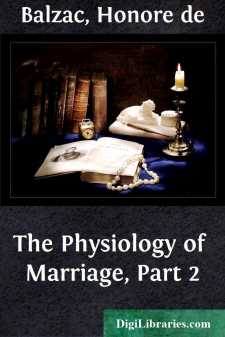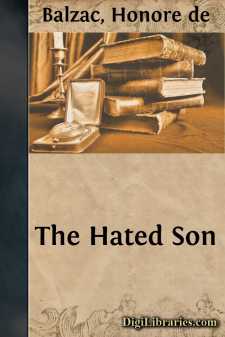Categories
- Antiques & Collectibles 13
- Architecture 36
- Art 48
- Bibles 22
- Biography & Autobiography 813
- Body, Mind & Spirit 142
- Business & Economics 28
- Children's Books 17
- Children's Fiction 14
- Computers 4
- Cooking 94
- Crafts & Hobbies 4
- Drama 346
- Education 46
- Family & Relationships 57
- Fiction 11829
- Games 19
- Gardening 17
- Health & Fitness 34
- History 1377
- House & Home 1
- Humor 147
- Juvenile Fiction 1873
- Juvenile Nonfiction 202
- Language Arts & Disciplines 88
- Law 16
- Literary Collections 686
- Literary Criticism 179
- Mathematics 13
- Medical 41
- Music 40
- Nature 179
- Non-Classifiable 1768
- Performing Arts 7
- Periodicals 1453
- Philosophy 64
- Photography 2
- Poetry 896
- Political Science 203
- Psychology 42
- Reference 154
- Religion 513
- Science 126
- Self-Help 84
- Social Science 81
- Sports & Recreation 34
- Study Aids 3
- Technology & Engineering 59
- Transportation 23
- Travel 463
- True Crime 29
Poor Relations
by: Honore de Balzac
Description:
Excerpt
INTRODUCTION
La Cousine Bette was perhaps the last really great thing that Balzac did—for Le Cousin Pons, which now follows it, was actually written before—and it is beyond all question one of the very greatest of his works. It was written at the highest possible pressure, and (contrary to the author's more usual system) in parts, without even seeing a proof, for the Constitutionnel in the autumn, winter, and early spring of 1846-47, before his departure from Vierzschovnia, the object being to secure a certain sum of ready money to clear off indebtedness. And it has been sometimes asserted that this labor, coming on the top of many years of scarcely less hard works, was almost the last straw which broke down Balzac's gigantic strength. Of these things it is never possible to be certain; as to the greatness of La Cousine Bette, there is no uncertainty.
In the first place, it is a very long book for Balzac; it is, I think, putting aside books like Les Illusions Perdues, and Les Celibataires, and Splendeurs et Miseres des Courtisanes, which are really groups of work written at different times, the longest of all his novels, if we except the still later and rather doubtful Petits Bourgeois. In the second place, this length is not obtained—as length with him is too often obtained—by digressions, by long retrospective narrations, or even by the insertion of such "padding" as the collection business in Le Cousin Pons. The whole stuff and substance of La Cousine Bette is honestly woven novel-stuff, of one piece and one tenor and texture, with for constant subject the subterranean malignity of the heroine, the erotomania of Hulot and Crevel, the sufferings of Adeline, and the pieuvre operations of Marneffe and his wife,—all of which fit in and work together with each other as exactly as the cogs and gear of a harmonious piece of machinery do. Even such much simpler and shorter books as Le Pere Goriot by no means possess this seamless unity of construction, this even march, shoulder to shoulder, of all the personages of the story.
In the second place, this story itself strikes hold on the reader with a force not less irresistible than that of the older and simpler stories just referred to. As compared even with its companion, this force of grasp is remarkable. It is not absolutely criminal or contemptible to feel that Le Cousin Pons sometimes languishes and loses itself; this can never be said of the history of the evil destiny partly personified in Elizabeth Fischer, which hovers over the house of Hulot.
Some, I believe, have felt inclined to question the propriety of the title of the book, and to assign the true heroineship to Valerie Marneffe, whom also the same and other persons are fond of comparing with her contemporary Becky Sharp, not to the advantage of the latter. This is no place for a detailed examination of the comparison, as to which I shall only say that I do not think Thackeray has anything to fear from it. Valerie herself is, beyond all doubt, a powerful study of the "strange woman," enforcing the Biblical view of that personage with singular force and effectiveness....












